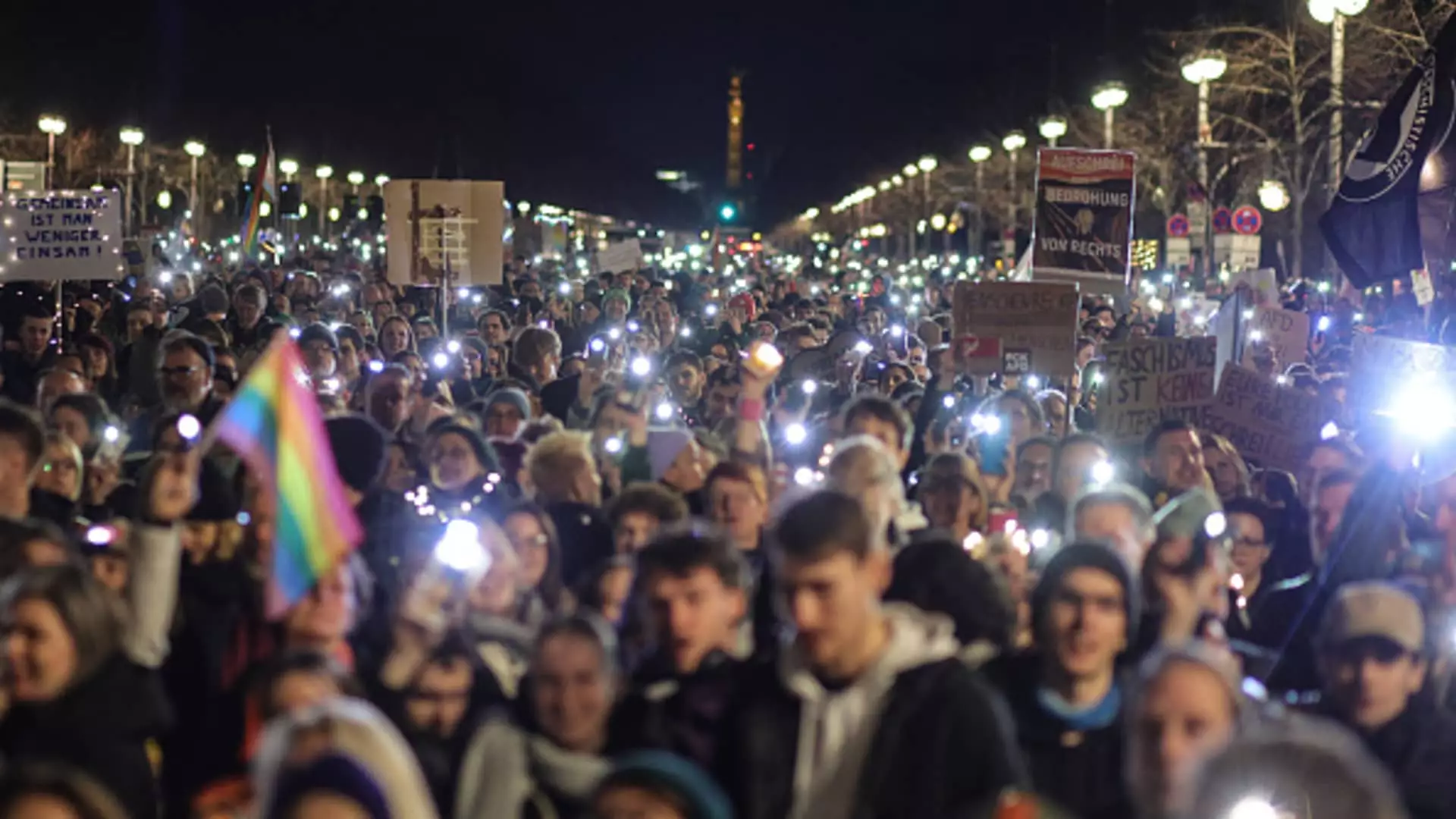On a brisk Saturday in Berlin, tens of thousands gathered in a powerful demonstration against the burgeoning influence of the Alternative for Germany (AfD), a party increasingly known for its far-right and anti-immigrant stance. This rally came as the nation braced for an imminent general election on February 23. Protesters congregated at iconic locations, such as the Brandenburg Gate, filling the air with a chorus of whistles, songs, and resolute banners that denounced extremist ideologies. The turnout speaks volumes about the public’s concern regarding the rising popularity of far-right factions not just in Germany, but across Europe.
As the protests unfolded, prominent voices emerged, including Luisa Neubauer from the Fridays for Future climate group. She pointedly addressed the crowd, linking the rise of the AfD and the global climate crisis as interconnected threats. Her assertion highlighted a crucial narrative: the challenges posed by xenophobia and climate inaction are not merely political issues but existential crises that endanger lives. This intersection of social justice and environmental advocacy signals a new wave of activism, where traditional political lines are being challenged.
Germany’s political fabric has been in disarray, especially following the collapse of Chancellor Olaf Scholz’s governing coalition late last year. The discord surrounding economic revitalization has stirred unrest and uncertainty which, in turn, serves as fertile ground for far-right rhetoric to flourish. The AfD, despite being shunned by mainstream parties, managed to capture a significant audience during their campaign launch in Halle, drawing in approximately 4,500 supporters. Such gatherings, combined with endorsements from controversial figures like Elon Musk, have the potential to shift public perception, making the fight against right-wing populism more urgent than ever.
The current political climate has prompted serious introspection among mainstream parties, particularly the center-right Union bloc, led by Friedrich Merz. Although the Union finds itself leading in pre-election polls, the specter of collaborating with the AfD looms large. Merz’s recent pledges to tighten migration policies have raised eyebrows, risking accusations of complicity with a party many consider anathema to democratic values. This moment is critical; how the Union navigates its strategies to address migration while distancing itself from the AfD may determine the trajectory of Germany’s political integrity in the coming years.
As the protests reflect a growing discontent with the status quo, they serve as a clarion call for unity among those opposed to far-right ideologies. Public dissent against the AfD must not only challenge the party itself but also galvanize broader coalitions willing to address the root causes of discontent that fuel such movements. Addressing systemic issues such as economic stagnation, social inequality, and ineffective climate policies will be pivotal in winning the ideological battle against the far-right.
The massive turnout in cities like Berlin underscores a pivotal moment in Germany’s political landscape, as citizens vehemently express their resistance against rising extremism. It is a reminder that vigilance, unity, and action are essential in safeguarding democracy and promoting a society that values diversity and inclusion.


Leave a Reply